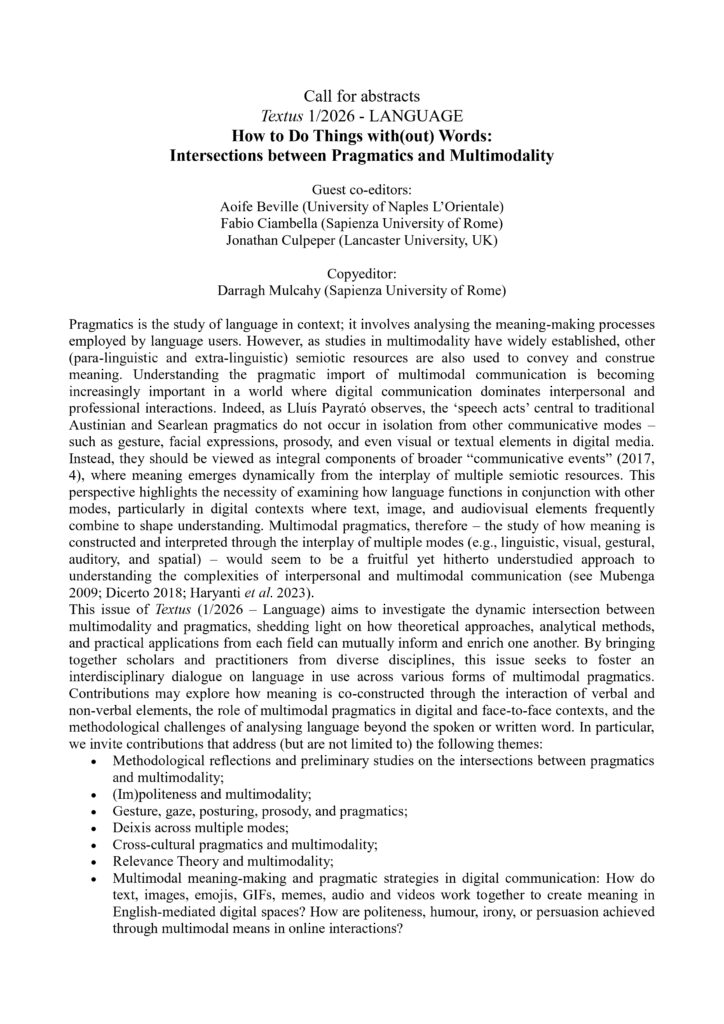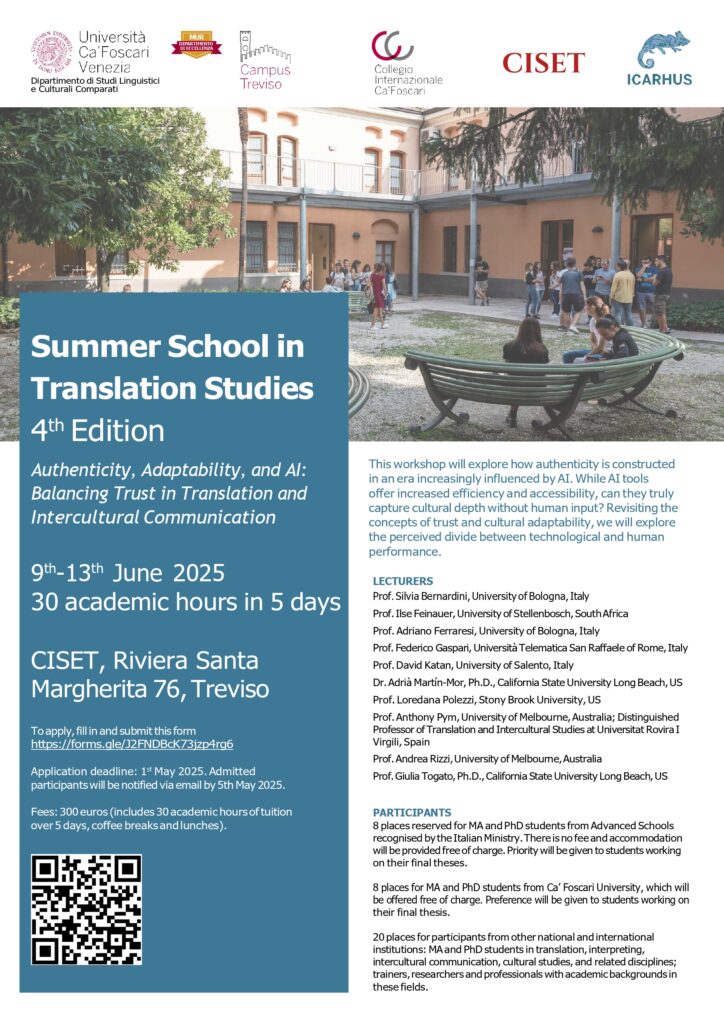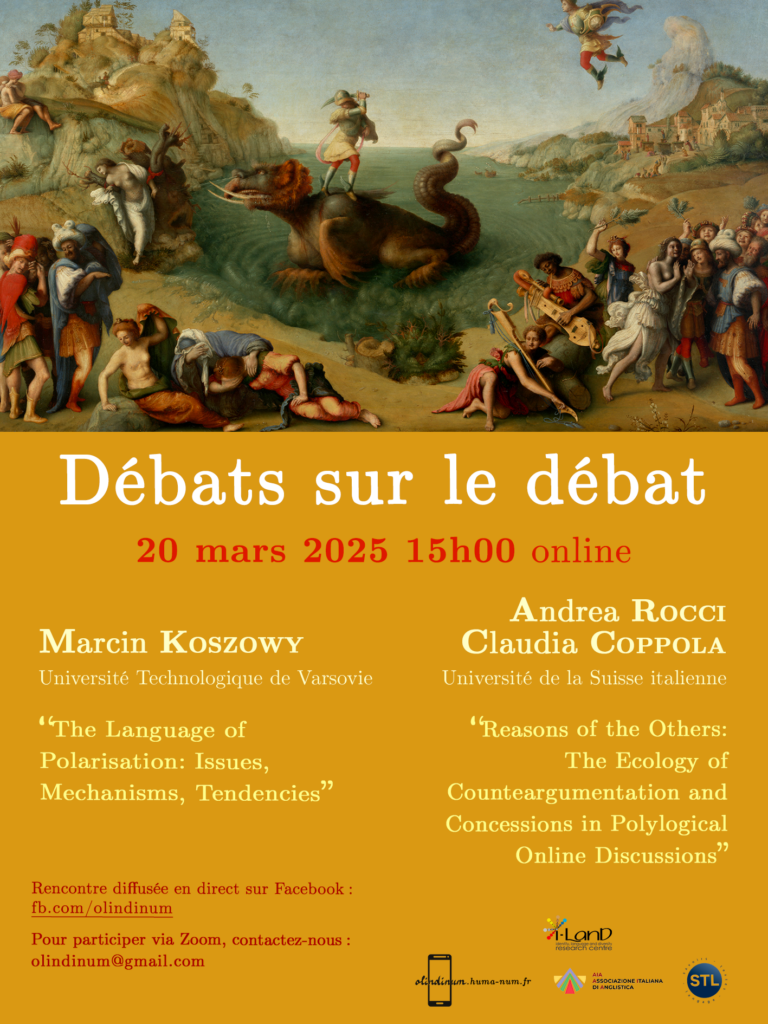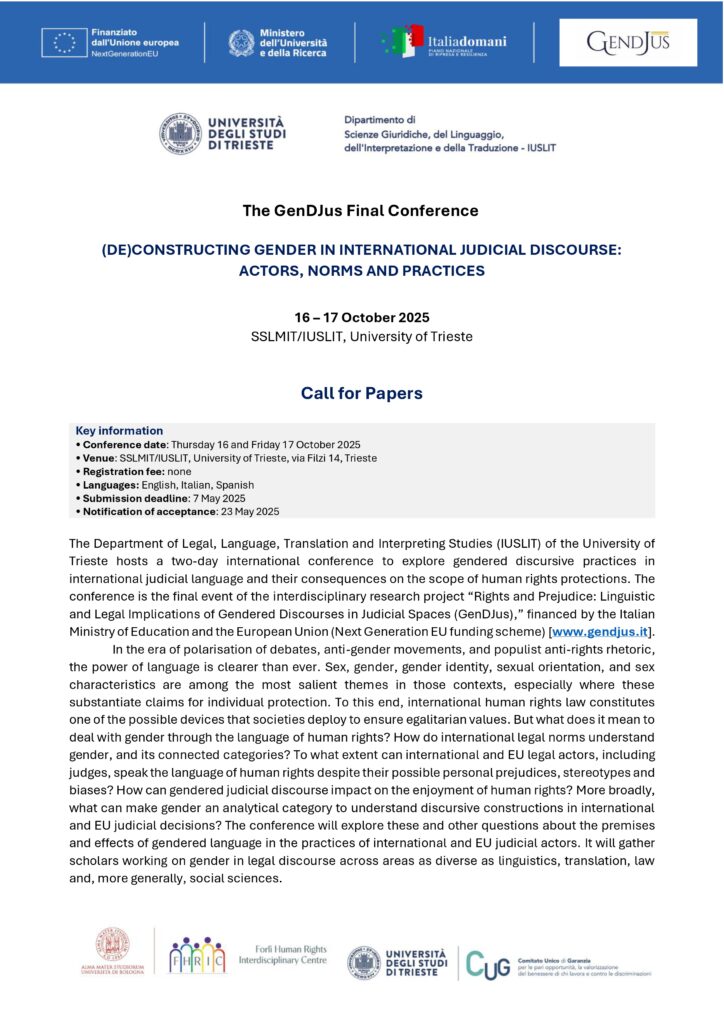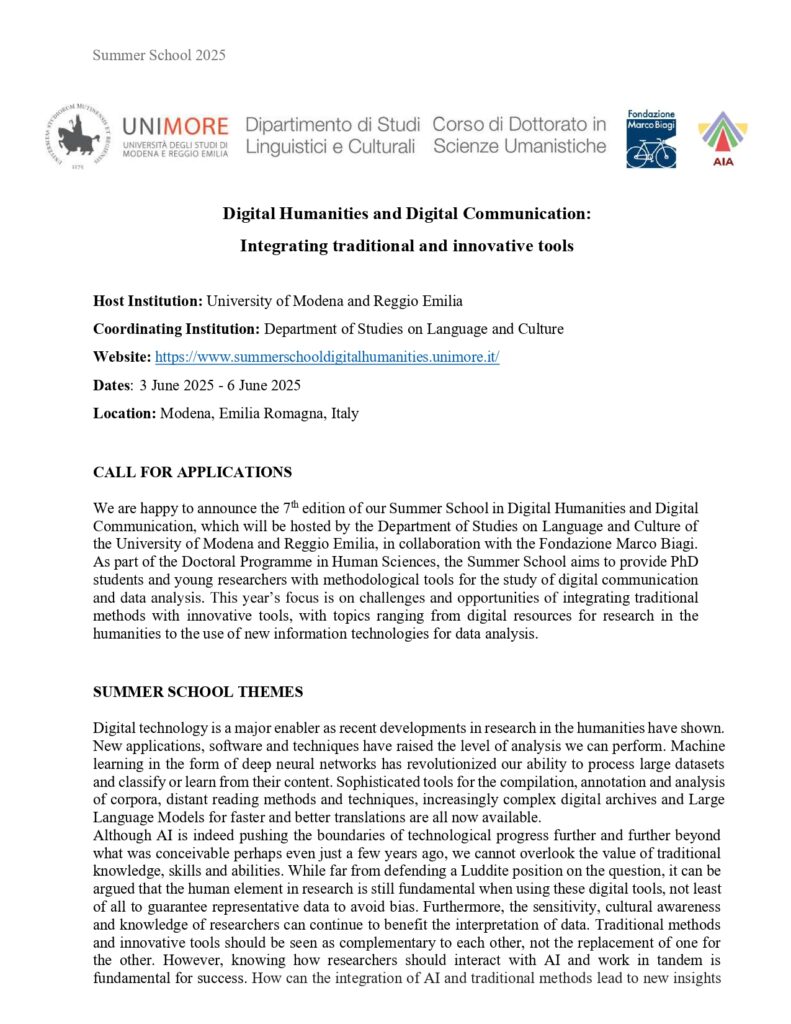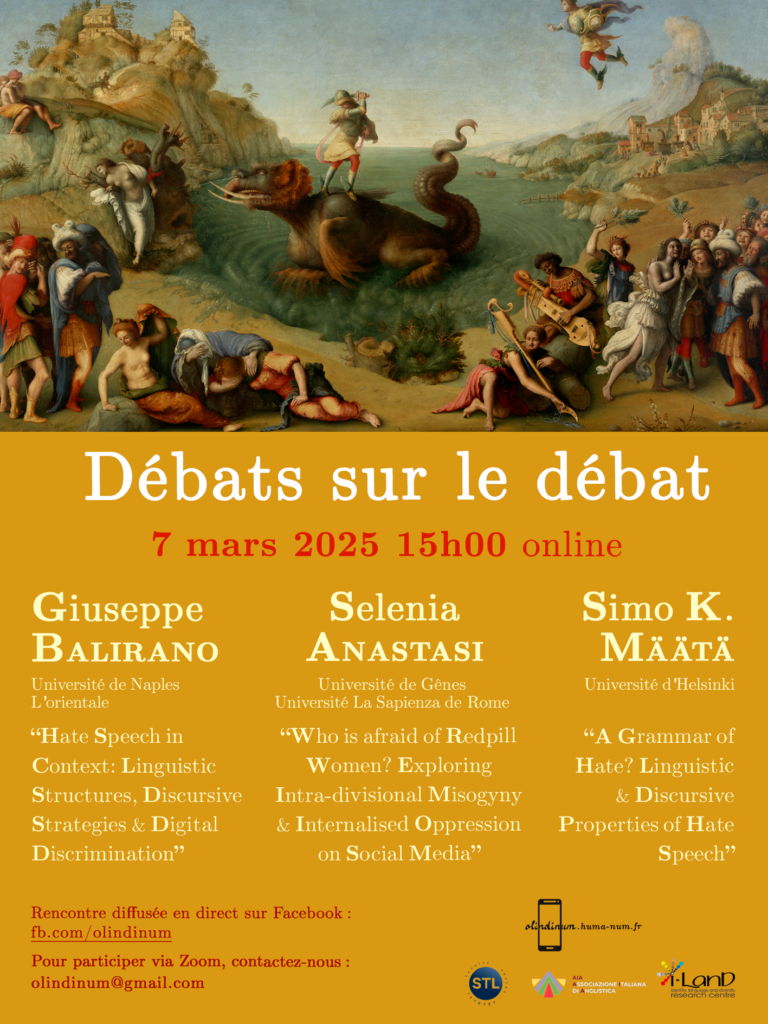Call for abstracts Textus 2/2026 – LITERATURE
Writing the End, Imagining the Future: Ecoapocalypses and Ecotopias in Anglophone Literature Guest co-editors: Gioia Angeletti (Università di Parma) Roberta Grandi (Università della Valle d’Aosta) Nicoletta Vallorani (Università degli Studi di Milano) Lykke Harmony Alara Guanio-Uluru (Western Norway University of Applied Sciences) Copyeditor: Elizabeth Ritsema (Royal Holloway – University of London) In The Last Man (1826), Shelley thus envisioned the annihilation of the human race: an endemic disease being turned into a pandemic plague by a combination of war-related increase in human contacts and an unprecedented rise in air temperature. Nearly a century and a half later, Callenbach’s Ecotopia (1975) imagined a sustainable society featuring mandatory waste recycling and electric engines, widespread bike-sharing, and advanced technological devices called “picturephones.” Science fiction has long exhibited an uncanny ability to anticipate the worst – and, more rarely, the best – of possible futures. Yet today, as climate change, global warming, the sixth mass extinction, phosphogeddon, and other eco-catastrophes have ceased to be speculative concerns and instead define the lived reality of many communities, the once-cathartic potential of apocalyptic narratives may be diminishing. As noticed by Amitav Ghosh, “There is, […], an important difference between the weather events that we are now experiencing and those that occur in surrealist and magical realist novels: improbable though they might be, these events are neither surreal nor magical. To the contrary, these highly improbable occurrences are overwhelmingly, urgently, astoundingly real.” (2017, 27) Over the last decades, eco-apocalyptic and dystopian works have functioned as a means of reflecting on contemporary environmental crises, serving as cautionary tales designed to warn and engage readers with urgent global concerns (Basu, Broad, and Hintz 2013; Bradford et al. 2008; Curry 2013). However, recent interdisciplinary research spanning psychology, anthropology, affect studies, environmental activism, participatory culture, and speculative fiction (Callahan et al. 2019; de Moor et al. 2020; Leyda 2023; Lockyer and Veteto 2015; McKinley 2008; Nairn 2019; Oziewicz, Attebery, and Dědinová 2022; Weik von Mossner 2017) suggests that an overreliance on apocalyptic frameworks may be counterproductive. Scholars argue that narratives centred on climate catastrophe risk engendering paralysis rather than action, as they can reinforce the perception of an inevitable and insurmountable collapse, discouraging proactive engagement with environmental challenges (Arnold 2018; Hull 2019). In response, alternative genres such as ecotopias and solarpunk offer visions of the future that inspire optimism rather than despair. These narratives imagine worlds that are not only sustainable but deeply appealing, fostering a desire for systemic transformation and encouraging active participation in building a more just and environmentally integrated society (Ulibarri 2022; Weik von Mossner 2017). This issue of Textus invites contributions that examine eco-apocalyptic visions, climate fiction, and environmental dystopias, as well as alternative imaginaries such as ecotopias, solarpunk, fantasy, afrofuturist and feminist utopias. We welcome ecocritical analyses of both classic and contemporary works of adult and children’s literature, along with other critical approaches informed by ecofeminism, intersectionality, blue and green humanities, energy humanities, posthumanism, new materialism, and affect studies. References Arnold, Elizabeth. 2018. ‘Doom and Gloom: The Role of the Media in Public Disengagement on Climate Change’. Shoresteincenter.Org (blog). 28 May 2018. Basu, Balaka, Katherine R. Broad, and Carrie Hintz, eds. 2013. Contemporary Dystopian Fiction for Young Adults.Brave New Teenagers. London, New York: Routledge. Bradford, Clare, Kerry Mallan, John Stephens, and Robyn McCallum. 2008. New World Orders in Contemporary Children’s Literature. London: Palgrave Macmillan UK. https://doi.org/10.1057/9780230582583. Buell, Lawrence. 2005. The Future of Environmental Criticism: Environmental Crisis and Literary Imagination. Blackwell Manifestos. Malden, MA: Blackwell Pub. Callahan, Megan M., Alejandra Echeverri, David Ng, Jiaying Zhao, and Terre Satterfield. 2019. ‘Using the Phylo Card Game to Advance Biodiversity Conservation in an Era of Pokémon’. Palgrave Communications 5 (1): 1–10. https://doi.org/10.1057/s41599-019-0287-9. Clark, Timothy. 2015. Ecocriticism on the Edge: The Anthropocene as a Threshold Concept. London, New York: Bloomsbury Academic, an imprint of Bloomsbury Publishing Plc. Curry, Alice. 2013. Environmental Crisis in Young Adult Fiction. London: Palgrave Macmillan UK. https://doi.org/10.1057/9781137270115. Dawson, Ashley. 2017. Extreme Cities: The Peril and Promise of Urban Life in the Age of Climate Change. London , New York: Verso. Garrard, Greg. 2004. Ecocriticism. London: Routledge. https://doi.org/10.4324/9780203644843. Ghosh, Amitav. 2017. The Great Derangement: Climate Change and the Unthinkable. The Randy L. and Melvin R. Berlin Family Lectures. Chicago: The University of Chicago press. Glotfelty, Cheryll, and Harold Fromm, eds. 2009. The Ecocriticism Reader: Landmarks in Literary Ecology. Nachdr. Athens, Ga.: Univ. of Georgia Press. Hull, Alyssa. 2019. ‘Hopepunk and Solarpunk: On Climate Narratives That Go Beyond the Apocalypse’. Literary Hub (blog). 22 November 2019. https://lithub.com/hopepunk-and-solarpunk-on-climate-narratives-that-go-beyond-the-apocalypse/. Iovino, Serenella, and Serpil Oppermann, eds. 2014. Material Ecocriticism. Bloomington: Indiana University Press. Leyda, Julia. 2023. Anthroposcreens: Mediating the Climate Unconscious. 1st ed. Cambridge University Press. https://doi.org/10.1017/9781009317702. Lockyer, Joshua, and James R. Veteto, eds. 2015. Environmental Anthropology Engaging Ecotopia: Bioregionalism, Permaculture, and Ecovillages. First paperback edition. Studies in Environmental Anthropology and Ethnobiology, volume 17. New York, Oxford: Berghahn. McKinley, Andrew. 2008. ‘Hope in a Hopeless Age: Environmentalism’s Crisis’. The Environmentalist 28 (3): 319–26. https://doi.org/10.1007/s10669-008-9169-1. Moor, Joost de, Katrin Uba, Mattias Wahlström, Magnus Wennerhag, Michiel De Vydt, Piotr Kocyba, Michael Neuber, et al. 2020. Protest for a Future II: Composition, Mobilization and Motives of the Participants in Fridays For Future Climate Protests on 20-27 September, 2019, in 19 Cities around the World. Nairn, Karen. 2019. ‘Learning from Young People Engaged in Climate Activism: The Potential of Collectivizing Despair and Hope’. YOUNG 27 (5): 435–50. https://doi.org/10.1177/1103308818817603. Oziewicz, Marek, Brian Attebery, and Tereza Dědinová, eds. 2022. Fantasy and Myth in the Anthropocene: Imagining Futures and Dreaming Hope in Literature and Media. London, New York: Bloomsbury Academic. Plumwood, Val. 2007. Environmental Culture: The Ecological Crisis of Reason. Environmental Philosophies Series. London: Routledge. Ulibarri, Sarena. 2022. ‘Do You Believe in Climate Solutions? You Just Might Be a Solarpunk.’ Fix. 4 April 2022. https://grist.org/fix/climate-fiction/do-you-believe-in-climate-solutions-you-just-might-be-a-solarpunk/. Weik von Mossner, Alexa. 2017. Affective Ecologies: Empathy, Emotion, and Environmental Narrative. Cognitive Approaches to Culture. Columbus: The Ohio State University Press. Submission of abstracts and timeline Please send abstracts to: gioia.angeletti@unipr.it, r.grandi@univda.it, nicoletta.vallorani@unimi.it Timeline Deadline for abstracts submission (400 words plus references): 15 September
Call for abstracts Textus 2/2026 – LITERATURE Read More »

